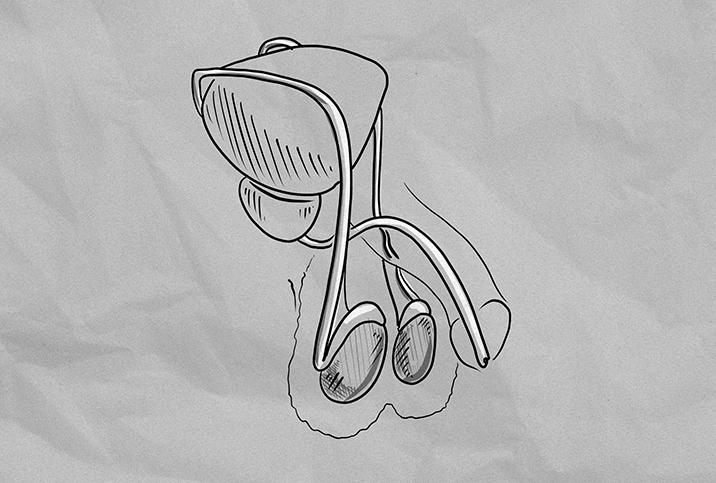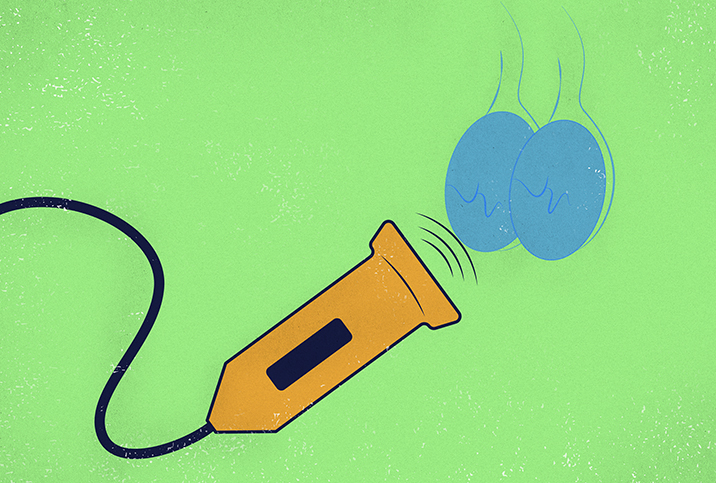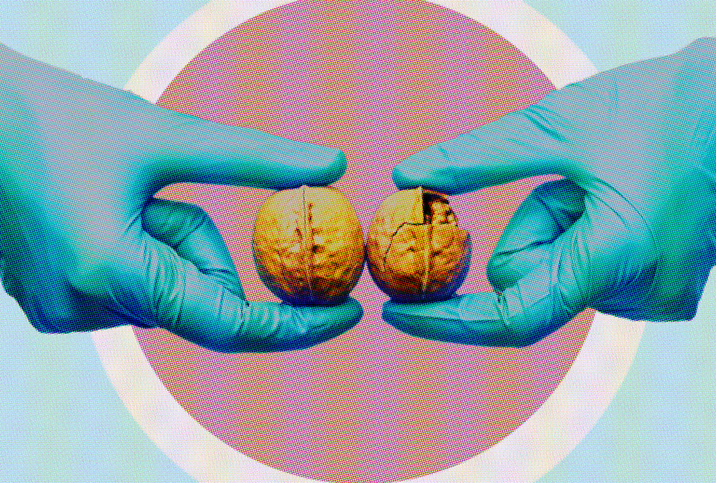Less Common Symptoms of Testicular Cancer

Testicular cancer develops in approximately 9,000 men annually in the United States. It's the most common type of cancer in males between the ages of 15 and 35. However, it's not one of the most common cancers overall, accounting for only a small percentage. A man's risk of getting testicular cancer is about 1 in 263.
Fortunately, testicular cancer is successfully treated in 95 percent of cases, and that figure rises to 98 percent when the cancer is treated early, according to the Cleveland Clinic. A man's chance of dying from it is only about 1 in 5,000.
A painless lump in one of the testicles, the male sex glands in the scrotum behind the penis, is the most widely known and common symptom of testicular cancer. However, a lump does not automatically mean cancer. The vast majority of lumps or swelling in the testes are not cancerous, but if you do notice an unusual lump, schedule an appointment with your doctor as soon as possible.
A number of other signs and symptoms can also indicate testicular cancer, but many of them are not very well known. We'll help educate you here.
Sharp pain or discomfort in one or both testicles
While testicular cancer isn't normally painful, some men experience pain in the testes or scrotum.
Heaviness or pressure in the scrotum
Your scrotum may feel like it weighs more than usual. You could also notice a change in the way a testicle feels. Some testicular tumors can reduce testosterone or increase estrogen, which can cause a change in size or the firmness of the testes. One of your testicles may be bigger or firmer than the other. However, it's normal for one testicle to hang lower than the other.
Swollen legs
Blood flow can get constricted when a tumor spreads to the lymph node, a small bean-shaped structure that contains white blood cells, which help the body fight infections. This can result in a blood clot in the legs, causing swelling. You may experience symptoms associated with blood clots, such as pain and trouble breathing. For some younger men, a blood clot could be the first sign of testicular cancer.
Breast growth
In rare cases, germ cell tumors, or growths that form from reproductive cells, can make a man's breasts enlarge or become sore. This happens because some germ cell tumors produce human chorionic gonadotropin(HCG), a hormone that stimulates breast development. Some Leydig cell tumors can lead to increased estrogen production, which can promote breast growth and decreased libido.
Coughing up blood and shortness of breath
Coughing up blood and shortness of breath could indicate testicular cancer has spread to your lungs, making it more difficult for air to move in and out.
Back and abdominal pain
Testicular cancer cells can spread into lymph glands in the abdomen. This can cause aches and pains in the back and lower abdomen.
If you experience any of these symptoms, schedule an appointment with your physician right away. To perform a self-examination of your testicles, check each one using both hands. Put two of your fingers underneath one of your testicles with your thumb on top. It's best to examine yourself while taking a warm shower, which can relax the scrotum. Gently but firmly roll the testicle between the thumbs and fingers to feel for any irregularities in its texture. Make sure you check both testicles.
If you believe you have symptoms of testicular cancer, schedule an appointment with your doctor as soon as you can.


















